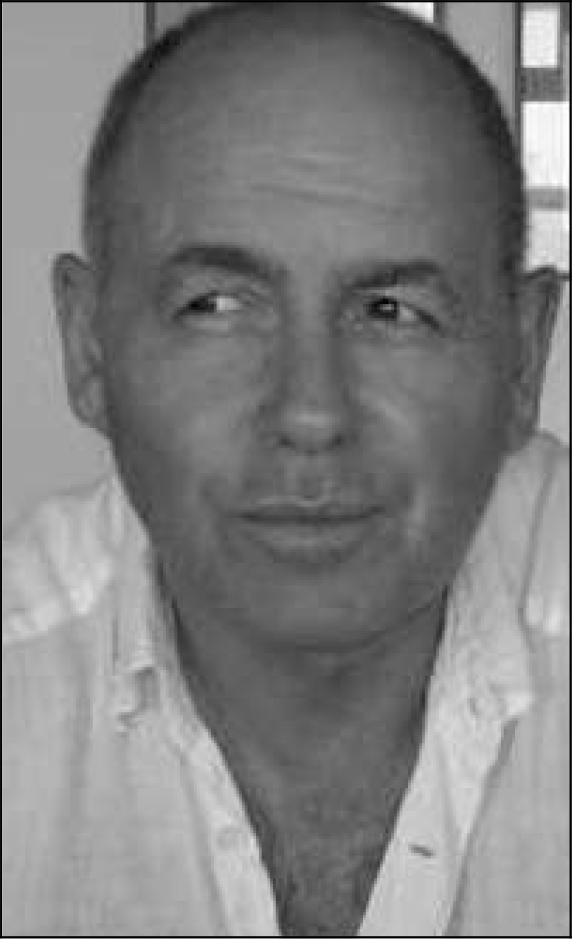Trevor Turner is a general adult psychiatrist and Clinical Director in the East London and City University Mental Health NHS Trust. He trained at St Bartholomew's and the Maudsley Hospitals. His special interests include the management of schizophrenia, the ‘comings and goings of community care’ and the history of psychiatry.
If you were not a psychiatrist, what would you do?
Orthopaedic surgery and be a consultant to my local football team (Leyton Orient); if not, a writer of sleazy thrillers.
What has been the greatest impact of your profession on you personally?
I get paid for doing what I love doing and I have learned to think about why people do things and how (potentially) to be happy.
Do you feel stigmatised by your profession?
Not personally, but the fight goes on and is the heart of the matter. As psychiatry is the ‘other half of medicine'so stigma is the other half of psychiatry.
What are your interests outside of work?
Far too many: films, football, family, going to shows (opera, theatre), history and collecting paperbacks.
Who was your most influential trainer, and why?
Dr Denis Leigh at the Maudsley, because he’d seen everything good or bad or mad, and taught us how to learn from every patient and look after the nursing team. As his last senior house officer (SHO) I let him down by not being a fake doctor (i.e. non-qualified!), the one professional experience he’d never had but longed to have before he retired.
What job gave you the most useful training experience?
Neurosurgery SHO-I was never again afraid of neurologists, examining fundi or being thought of as a non-doctor. I got to know about the brain.
What publication has influenced you most?
I am torn between Edmund Gosse's Father and Son and Sartre's Nausea, depending on what I’m doing at the time. Alwyn Lishman's Organic Psychiatry is the most elegant psychiatric textbook I have ever read.

What part of your work gives you the most satisfaction?
Seeing the thrill in trainees’ eyes when psychotic patients get better.
What do you least enjoy?
Dealing with emails.
What is the most promising opportunity facing the profession?
Probably brain surgery for melancholia and our reintegration into mainstream medicine via, for example, pharmacogenetics.
What is the greatest threat?
Other doctors’ ignorance of psychiatry and (often) their downright prejudice.
What single change would substantially improve quality of care?
Making the NHS independent, as the BBC, thus freeing it from the random demands of political disorganisation and vogueish impositions.
What conflict of interest do you encounter most often?
Patient care or paperwork/meetings.
What is the role of the psychiatrist in countries emerging from conflict?
Finding out how to deal with psychological trauma and promoting effective reconciliation inside people and between people.
What is the most important advice you could offer to a new trainee?
Engage with the patient in accordance with Admiral Nelson's advice to his captains at Trafalgar: roughly speaking, a captain will be deemed to have performed his duty if he lays his ship alongside the enemy and commences firing.
What are the main ethical problems that psychiatrists will face in the future?
Being required to act as thought police rather than doctors, providing a clinical/scientific gloss to a desperate polity and dealing with euthanasia.
Do you think psychiatry is brainless or mindless?
It is constantly pulled in either direction; the task is to acknowledge both but hold to the evidence.
What single change to mental health legislation would you like to see?
Automatic tribunals for every patient, thus ensuring court/tribunal-led detentions with psychiatrists treating rather than socially controlling. We bravely led the world in 1959 by taking on the responsibility of detaining without a magistrate's court but in the world of community care have become sitting ducks for the ‘risk management’ delusion.
What single area of psychiatric practice is most in need of development?
Diagnostic clarity.
What single area of psychiatric research should be given priority?
Evaluating treatment effectiveness.
How would you like to be remembered?
As in Philip Gosse by Edmund Gosse, by a biography written by one of my children.



eLetters
No eLetters have been published for this article.